
Lamai: Koh Samui's Serene Coastal Gem
Lamai, nestled on the southeast coast of Koh Samui, is a tranquil haven that perfectly balances natural beauty and modern comforts. This charming neighborhood is celebrated for its stunning beaches, clear turquoise waters, and relaxed atmosphere, making it a favorite destination for those seeking a quieter alternative to the bustling Chaweng Beach. Visitors to Lamai can explore the local culture by visiting the vibrant Lamai Night Market, where you can sample delicious Thai street food, shop for unique souvenirs, and enjoy live music and performances. For a touch of history and spirituality, the Wat Lamai temple offers a serene escape with its beautiful architecture and tranquil surroundings. Nature lovers will appreciate the nearby Hin Ta and Hin Yai rocks, also known as the Grandfather and Grandmother rocks, which are famous for their unusual shapes and stunning ocean views. For a more adventurous experience, the Lamai Viewpoint provides breathtaking panoramic views of the island and the sea, and the thrill of a zipline ride through the lush jungle. Lamai is also home to a variety of wellness retreats and spas, making it an excellent destination for relaxation and rejuvenation. Whether you are looking to unwind with a traditional Thai massage or participate in a yoga class, Lamai has something to offer everyone.
Local tips in Lamai
- Visit the Lamai Night Market for an authentic taste of local Thai cuisine and vibrant nightlife.
- Don't miss the Hin Ta and Hin Yai rocks for a unique natural sightseeing experience.
- Check out the Lamai Viewpoint for stunning panoramic views and a thrilling zipline adventure.
- Take advantage of the many wellness retreats and spas for ultimate relaxation and rejuvenation.
- Plan your visit to Wat Lamai temple in the early morning to avoid crowds and enjoy a peaceful atmosphere.
Lamai: Koh Samui's Serene Coastal Gem
Lamai, nestled on the southeast coast of Koh Samui, is a tranquil haven that perfectly balances natural beauty and modern comforts. This charming neighborhood is celebrated for its stunning beaches, clear turquoise waters, and relaxed atmosphere, making it a favorite destination for those seeking a quieter alternative to the bustling Chaweng Beach. Visitors to Lamai can explore the local culture by visiting the vibrant Lamai Night Market, where you can sample delicious Thai street food, shop for unique souvenirs, and enjoy live music and performances. For a touch of history and spirituality, the Wat Lamai temple offers a serene escape with its beautiful architecture and tranquil surroundings. Nature lovers will appreciate the nearby Hin Ta and Hin Yai rocks, also known as the Grandfather and Grandmother rocks, which are famous for their unusual shapes and stunning ocean views. For a more adventurous experience, the Lamai Viewpoint provides breathtaking panoramic views of the island and the sea, and the thrill of a zipline ride through the lush jungle. Lamai is also home to a variety of wellness retreats and spas, making it an excellent destination for relaxation and rejuvenation. Whether you are looking to unwind with a traditional Thai massage or participate in a yoga class, Lamai has something to offer everyone.
Iconic landmarks you can’t miss
Grandfather and Grandmother Rocks (Hin Ta Hin Yai)
Explore the iconic Grandfather and Grandmother Rocks in Koh Samui, Thailand – a stunning natural wonder and cultural landmark.
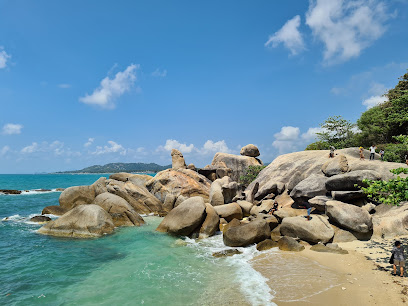
Ta Nim Magic Garden
Discover the enchanting beauty of Ta Nim Magic Garden, where art and nature blend seamlessly on the stunning island of Ko Samui, Thailand.
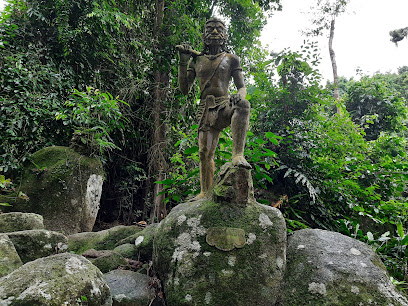
Lad Koh View Point
Discover stunning views at Lad Koh View Point, a scenic spot in Ko Samui offering breathtaking vistas of the Gulf of Thailand.
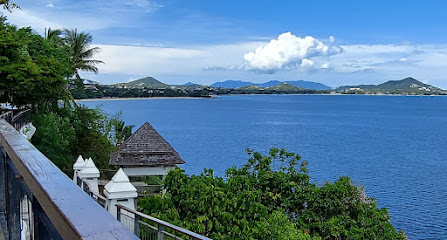
Lamai Viewpoint & Valentine Stone
Discover breathtaking views and delightful refreshments at Lamai Viewpoint & Valentine Stone, a perfect destination for adventure and relaxation in Koh Samui.
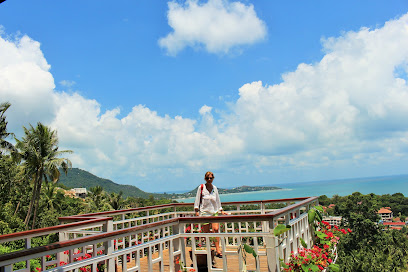
T-shirts
Discover the vibrant flavors and unique crafts at Lamai Night Market, a must-visit destination for food lovers in Koh Samui, Thailand.
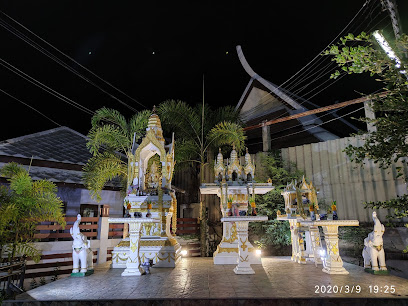
Overlap stone
Explore the Overlap Stone in Koh Samui, a stunning natural and historical landmark offering breathtaking views and a glimpse into local culture.
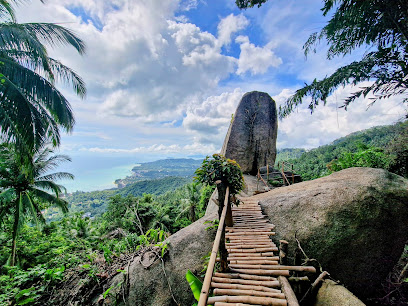
Ban Tai Beach
Discover the tranquil beauty of Ban Tai Beach in Koh Samui, a serene destination perfect for relaxation, local culture, and breathtaking sunsets.
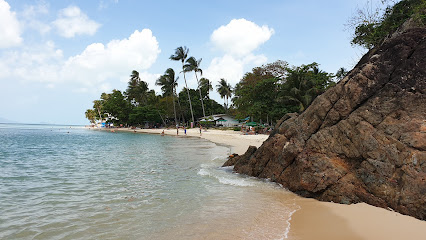
Lamai Beach
Experience the serene beauty and vibrant culture of Lamai Beach, Ko Samui's picturesque paradise for relaxation and adventure.
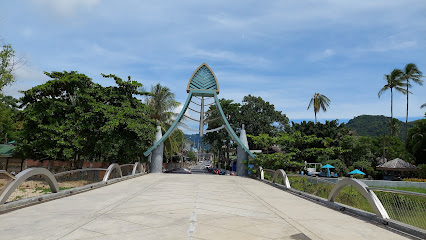
Wat Lamai
Experience the serene beauty and rich cultural heritage of Wat Lamai, a must-visit Buddhist temple in Koh Samui, Thailand.
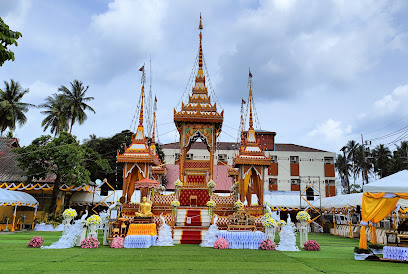
Phachuanchom Lamai
Experience the tranquil beauty of Phachuanchom Lamai, a hidden gem in Ko Samui District, offering stunning views and rich cultural experiences.
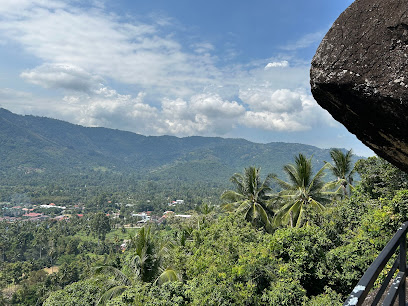
Unmissable attractions to see
Tarnim Magic Garden
Explore the whimsical wonders of Tarnim Magic Garden in Ko Samui, where art and nature unite in a breathtaking landscape.
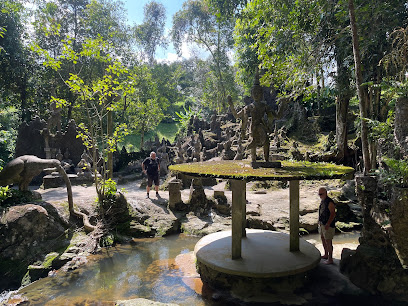
Lamai Beach
Discover Lamai Beach, a stunning destination in Koh Samui with golden sands, vibrant nightlife, and a perfect blend of relaxation and adventure.
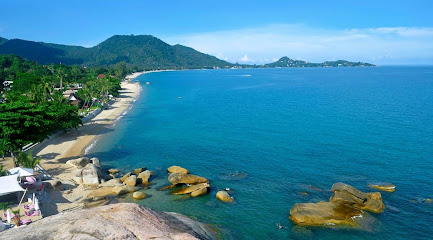
Lamai Viewpoint & Valentine Stone
Discover romance and breathtaking views at Lamai Viewpoint & Valentine Stone in Koh Samui, a perfect blend of adventure and scenic beauty.
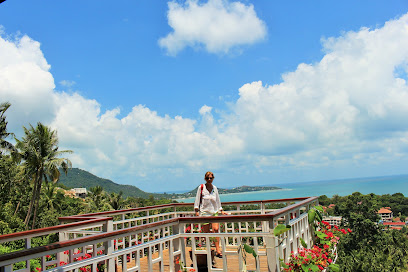
Samui Aquarium & Tiger Zoo
Explore the vibrant marine life and exotic animals at Samui Aquarium & Tiger Zoo, a family-friendly attraction in Koh Samui.
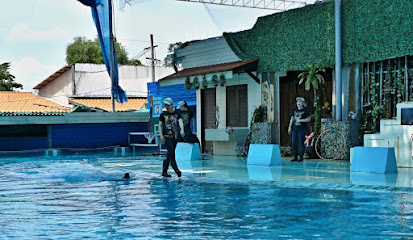
Overlap stone
Explore Overlap Stone in Ko Samui, Thailand: A stunning geological wonder and historical landmark offering breathtaking views and cultural significance.
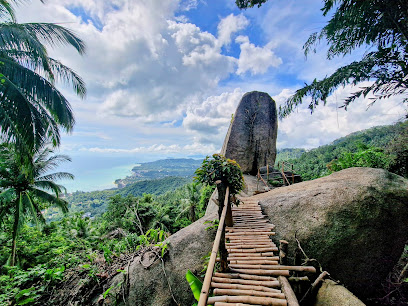
Samui Shooting Range
Experience the thrill of marksmanship at Samui Shooting Range, a unique adventure in the heart of Ko Samui's stunning landscapes.
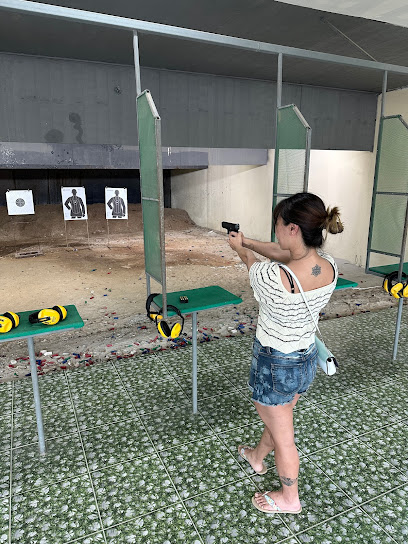
Essential places to dine
Baobab Restaurant
Discover authentic French cuisine at Baobab Restaurant in Koh Samui – where tropical charm meets culinary excellence.
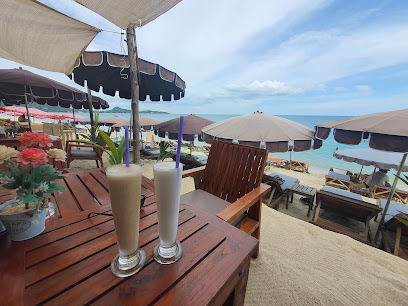
Imchai
Experience the authentic flavors of Thailand at Imchai in Koh Samui - where every dish is crafted with passion and served with warmth.
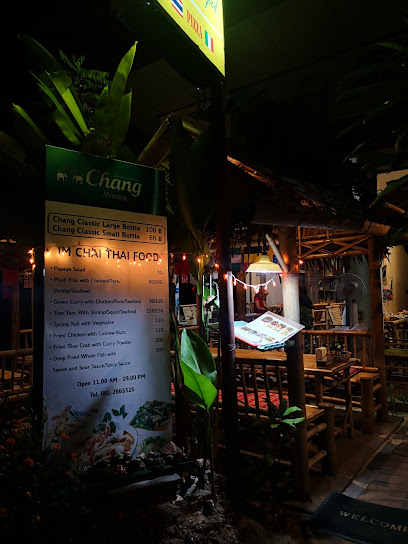
Pink Orchid Restaurant
Experience authentic Thai cuisine at Pink Orchid Restaurant in Ko Samui - where every dish is crafted with fresh ingredients and served with genuine hospitality.
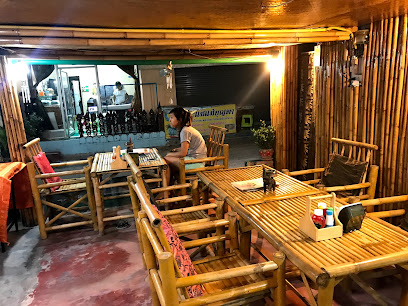
Black Pearl
Discover the flavors of Thailand at Black Pearl - A culinary gem on Lamai Beach offering fresh seafood and stunning ocean views.
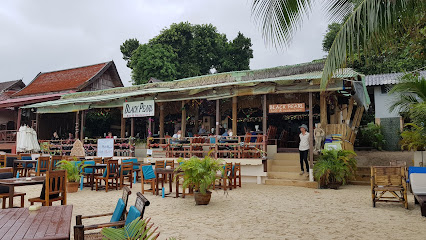
Salathai Restaurant
Discover the flavors of Thailand at Salathai Restaurant in Koh Samui - where fresh seafood meets authentic Thai cuisine.
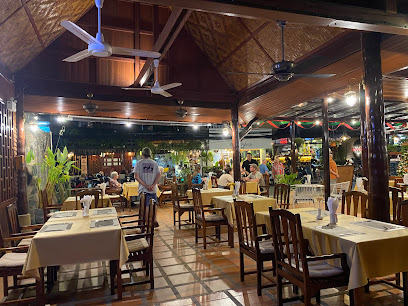
Seventy Fahrenheit
Experience the best of Thai cuisine at Seventy Fahrenheit - where flavor meets ambiance in the heart of Ko Samui.
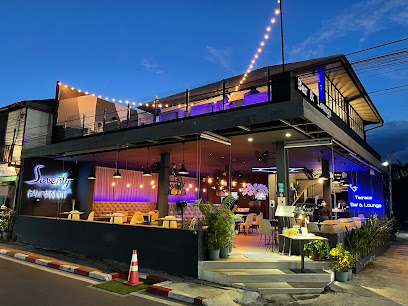
Italian Restaurant Tropicana Koh Samui
Discover the essence of Italy at Tropicana Koh Samui with authentic cuisine ranging from wood-fired pizzas to delectable vegetarian dishes.
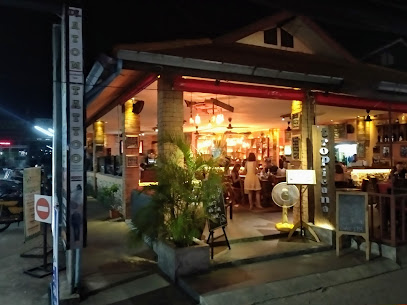
Emporio caffé
Discover authentic Italian flavors at Emporio Caffé in Koh Samui, where exquisite cuisine meets breathtaking tropical scenery.
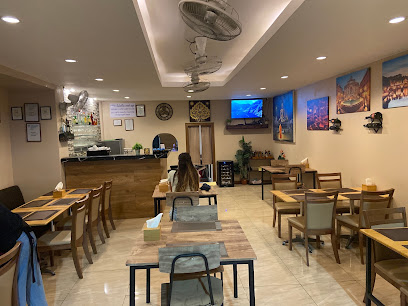
Kob Thai restaurant
Experience authentic Thai cuisine at Kob Thai Restaurant in Koh Samui, where fresh ingredients meet stunning beach views for an unforgettable dining experience.
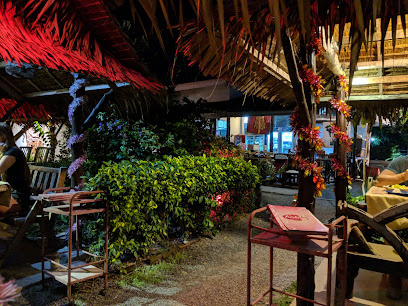
Eating Time
Discover the authentic taste of Thailand at Eating Time in Ko Samui—where every dish tells a story.
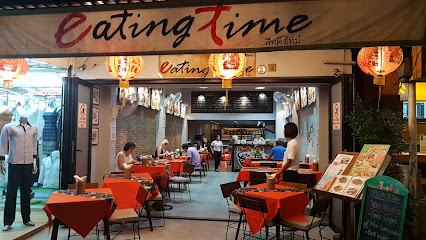
Markets, malls and hidden boutiques
T-shirts
Discover the vibrant Lamai Night Market in Koh Samui, a paradise for food lovers and shoppers seeking unique Thai experiences.
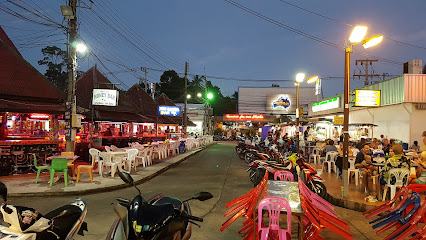
V-Versace Koh Samui Best Tailor Lamai Beach
Experience bespoke tailoring at V-Versace Koh Samui, where expert craftsmanship meets personalized service on the beautiful Lamai Beach.
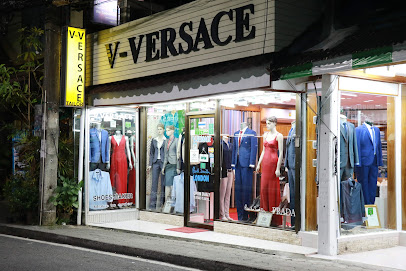
Fair Artisan Store
Explore local craftsmanship at Fair Artisan Store in Koh Samui, where unique handicrafts meet rich Thai culture in a vibrant boutique setting.

CoastalCotton Clothings Store
Explore CoastalCotton Clothings Store in Lamai Night Market for unique Thai-made dresses and T-shirts that embody the vibrant spirit of island life.
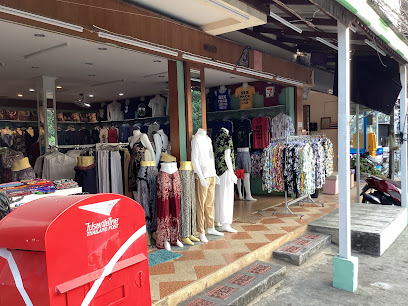
FACTORY WORLD JEWELS
Explore the artistry of handcrafted jewelry at Factory World Jewels, Koh Samui's premier destination for unique and exquisite designs.
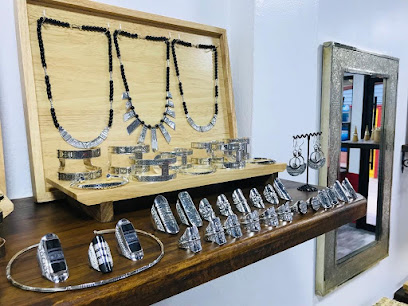
Samui Custom Gift
Explore the charm of Samui Custom Gift, your go-to souvenir store for unique, personalized treasures in the heart of Lamai.
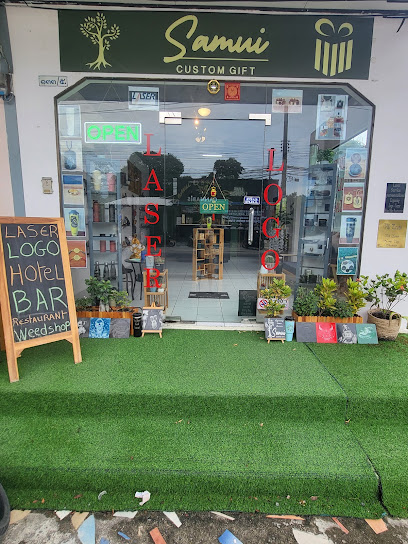
Jane's Boutique Thailand Co. Ltd.
Explore Jane's Boutique in Koh Samui for unique Thai souvenirs that capture the spirit of your travels.
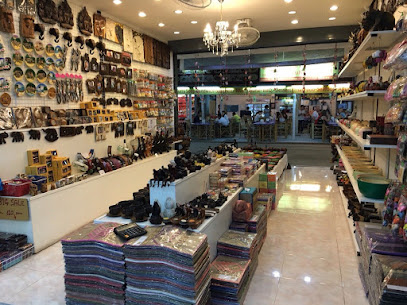
Souvenir shop
Discover a treasure trove of unique keepsakes and exquisite floral designs at Lamai Beach's charming souvenir shop.
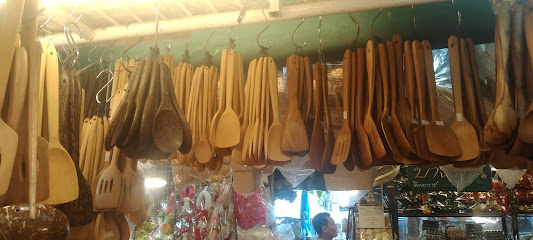
Buddha Lamai Shop
Explore the essence of Thai culture at Buddha Lamai Shop, where unique gifts and souvenirs await every traveler.
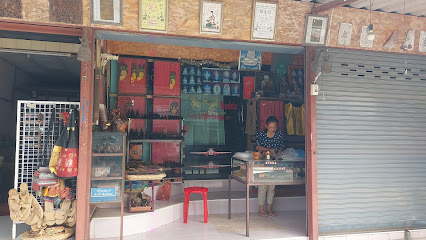
Koh Samui Lamai
Explore unique fashion at Koh Samui Lamai, where local craftsmanship meets contemporary style in a vibrant shopping experience.
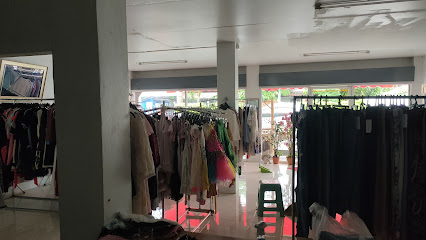
Essential bars & hidden hideouts
Shamrock Irish Pub
Discover Shamrock Irish Pub: A lively Irish retreat in Lamai Beach, Koh Samui, offering great drinks, food, and entertainment in a tropical paradise.
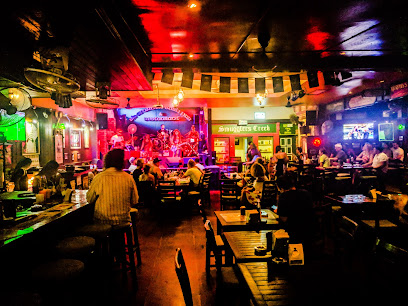
Lamai Cocktails
Experience the vibrant nightlife and exotic flavors at Lamai Cocktails, the premier cocktail bar in Ko Samui, Thailand.
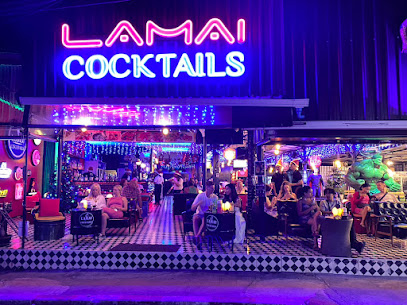
Samui Mojito Lab
Dive into the vibrant nightlife of Koh Samui at Samui Mojito Lab, where exceptional cocktails and energetic vibes await!
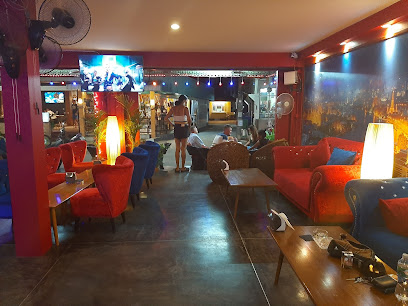
Bear Cocktails
Experience the vibrant atmosphere and delicious cocktails at Bear Cocktails in Koh Samui, a true gem for tourists seeking a lively night out.
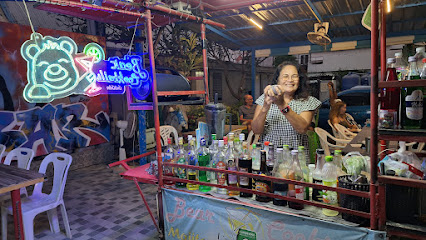
Dolphin Cocktail Bar
Experience the tropical nightlife at Dolphin Cocktail Bar in Ko Samui, where refreshing drinks meet a vibrant atmosphere.
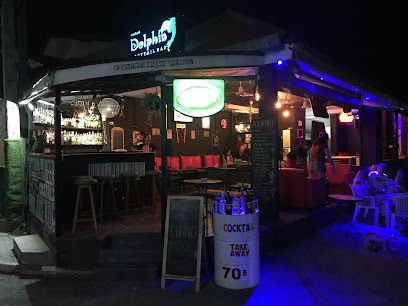
Mynt Lounge
Discover Mynt Lounge: A vibrant pub in Ko Samui offering stunning beach views, lively nightlife, and a diverse menu for every palate.
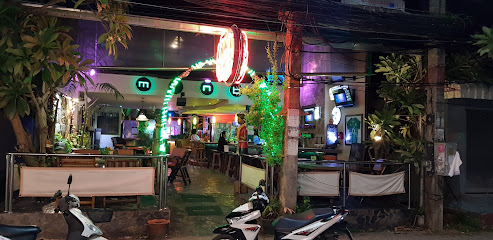
Marine Bar
Experience the vibrant nightlife at Marine Bar in Ko Samui, where stunning views and refreshing cocktails await in a lively tropical setting.
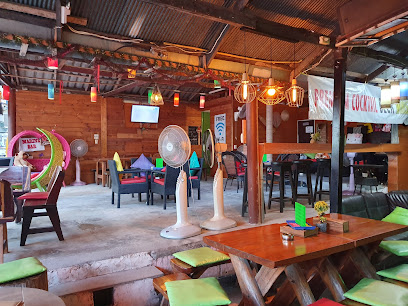
AA Lounge
Experience the vibrant nightlife at AA Lounge, a must-visit bar in Ko Samui with exquisite cocktails and a lively atmosphere that captivates every visitor.
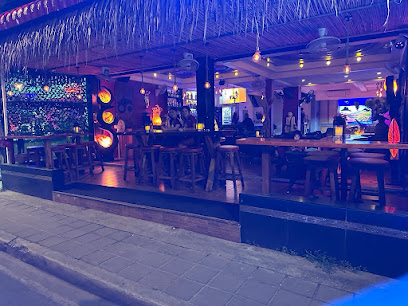
Saloon Lamai
Discover the lively charm of Saloon Lamai in Koh Samui, where great drinks meet a vibrant atmosphere for an unforgettable night out.
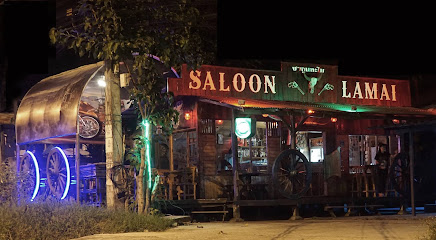
Lamai Beer Bars
Experience the vibrant nightlife at Lamai Beer Bars in Ko Samui, where refreshing drinks and lively atmosphere create unforgettable memories.
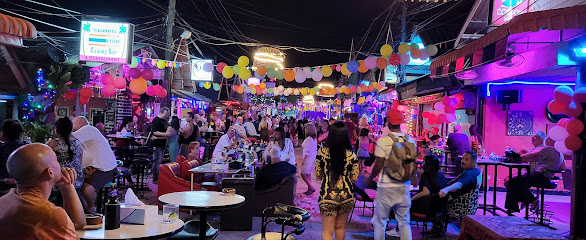
Local Phrases
-
- Helloสวัสดี
[sawasdee] - Goodbyeลาก่อน
[laa kon] - Yesใช่
[chai] - Noไม่
[mai] - Please/You're welcomeโปรด/ยินดีต้อนรับ
[proht/yin dee dton rap] - Thank youขอบคุณ
[kop khun] - Excuse me/Sorryขอโทษ
[kor toht] - How are you?สบายดีไหม
[sabai dee mai] - Fine. And you?สบายดีครับ คุณล่ะ
[sabai dee khrap khun la] - Do you speak English?คุณพูดภาษาอังกฤษได้ไหม
[khun poot phasa angkrit dai mai] - I don't understandฉันไม่เข้าใจ
[chan mai khao jai]
- Helloสวัสดี
-
- I'd like to see the menu, pleaseฉันอยากดูเมนู ของหน่อย
[chan yak du menu kong noi] - I don't eat meatฉันไม่กินเนื้อ
[chan mai kin neuua] - Cheers!ชนแก้ว!
[chon kaeo] - I would like to pay, pleaseฉันอยากจ่ายเงิน ขอบ่อย
[chan yak jai ngeun kor boi]
- I'd like to see the menu, pleaseฉันอยากดูเมนู ของหน่อย
-
- Help!ช่วยด้วย!
[chuay duay] - Go away!ไปหลีกที
[pai lik ti] - Call the Police!โทรตำรวจ!
[tor tamruat] - Call a doctor!โทรหมอ!
[tor mor] - I'm lostฉันหลงทาง
[chan long tang] - I'm illฉันไม่สบาย
[chan mai sabai]
- Help!ช่วยด้วย!
-
- I'd like to buy...ฉันอยากซื้อ...
[chan yak seuu...] - I'm just lookingฉันแค่ดูอย่างเดียว
[chan kae du yang diao] - How much is it?ราคาเท่าไร
[ra kha thao rai] - That's too expensiveแพงเกินไป
[paeng gein pai] - Can you lower the price?ลดราคาได้ไหม
[lot ra kha dai mai]
- I'd like to buy...ฉันอยากซื้อ...
-
- What time is it?ตอนนี้เวลาเท่าไร
[ton nee welaa thao rai] - It's one o'clockเวลาหนึ่งโมง
[welaa neung mong] - Half past (10)ครึ่งทิศ
[khrung thit] - Morningเช้า
[chao] - Afternoonบ่าย
[bai] - Eveningเย็น
[yen] - Yesterdayเมื่อวาน
[meua waan] - Todayวันนี้
[wan nee] - Tomorrowพรุ่งนี้
[phrung nee] - 1หนึ่ง
[neung] - 2สอง
[song] - 3สาม
[sam] - 4สี่
[si] - 5ห้า
[ha] - 6หก
[hok] - 7เจ็ด
[jet] - 8แปด
[paet] - 9เก้า
[gao] - 10สิบ
[sip]
- What time is it?ตอนนี้เวลาเท่าไร
-
- Where's a/the...?...อยู่ที่ไหน
[...yu tee nai] - What's the address?ที่อยู่คืออะไร
[tee yu keu a rai] - Can you show me (on the map)?คุณแสดงให้ฉันดูได้ไหม
[khun sa daeng hai chan du dai mai] - When's the next (bus)?รถเมลืองต่อไปเวลาเท่าไร
[roh meluang tor pai welaa thao rai] - A ticket (to ....)ตั๋ว (ไป ...)
[dtua (pai ...)]
- Where's a/the...?...อยู่ที่ไหน
History of Lamai
-
Lamai's history dates back to the early days of Koh Samui's settlements, with evidence of fishing and agriculture as the primary livelihoods. The area was initially inhabited by the Chao Ley people, also known as sea gypsies, who relied on the rich marine resources of the Gulf of Thailand. Their way of life significantly influenced the cultural tapestry of Lamai.
-
During the 19th century, Lamai saw an influx of Chinese immigrants who came to work in the tin mining industry and later in rubber plantations. This migration led to a blend of cultures, with Chinese influences evident in local cuisine, architecture, and festivals. The Chinese community established temples, such as the Wat Lamai, which remains a significant cultural landmark.
-
The 1970s marked a turning point for Lamai as Koh Samui began to gain popularity as a tourist destination. The development of infrastructure, including roads and accommodations, attracted both domestic and international visitors. Lamai's pristine beaches and vibrant nightlife became a draw, changing the local economy from traditional fishing and agriculture to tourism.
-
In recent years, Lamai has balanced tourism growth with efforts to preserve its cultural heritage. Initiatives to promote local crafts, food, and traditions are evident, with markets and festivals celebrating Lamai's unique identity. The community remains engaged in maintaining the traditional lifestyles while adapting to the demands of modern tourism.
-
Lamai is home to several important Buddhist temples, including Wat Khunaram, known for its mummified monk, Luang Pho Daeng. This site attracts visitors interested in spirituality and the unique practices of Theravada Buddhism. The presence of these temples highlights the spiritual significance of Lamai and its role in the broader religious landscape of Koh Samui.
Lamai Essentials
-
Lamai is easily accessible from other neighborhoods in Koh Samui. The nearest airport is Samui International Airport, located about 15 kilometers north of Lamai. From the airport, you can take a taxi or a pre-arranged shuttle service directly to Lamai, which typically takes around 30 minutes. If you're coming from Chaweng or Bophut, local songthaews (shared pickup trucks) are available, offering an inexpensive way to travel along the main road. The journey from Chaweng to Lamai takes approximately 20 minutes.
-
Lamai is a compact neighborhood, making it easy to explore on foot. For longer distances, renting a scooter is a popular option among tourists and can be found at various rental shops. Alternatively, you can use songthaews for hopping between nearby areas. Bicycles are also available for rent, providing a leisurely way to see the sights. Taxis and tuk-tuks are readily available, but always agree on a fare before starting your journey.
-
Lamai is generally considered a safe neighborhood for tourists, but it is advisable to remain vigilant. Avoid walking alone at night in poorly lit areas, especially on the beach. While violent crime is rare, petty theft can occur, particularly in crowded areas. Be cautious of your belongings and avoid displaying valuable items. There are no specific high-crime areas targeting tourists, but common sense precautions should be taken.
-
In case of an emergency, dial 191 for police assistance or 1669 for medical emergencies. The nearest hospital is the Samui International Hospital, located a short drive from Lamai. For minor health issues, numerous pharmacies are scattered throughout the area. It is advisable to have travel insurance that covers emergencies, especially medical ones.
-
Fashion: Do dress modestly when visiting temples or local markets. Avoid beachwear away from the beach. Religion: Do respect local customs, especially at religious sites; remove your shoes when entering. Public Transport: Do be courteous and give up your seat to the elderly or pregnant women. Don't eat or drink on songthaews. Greetings: Do greet locals with a friendly smile and a 'sawasdee' (hello). Eating & Drinking: Do try local dishes and street food. Don't waste food or refuse hospitality, as this might be seen as disrespectful.
-
To experience Lamai like a local, visit the morning market where you can find fresh produce and local delicacies. Try to learn a few basic Thai phrases; locals appreciate the effort. Spend time at the beach during sunset, as it’s a popular gathering time for both locals and tourists. Don’t miss the chance to explore the hidden waterfalls and lush jungles surrounding Lamai, which are less frequented by tourists.
-
When visiting temples, be sure to dress appropriately, covering shoulders and knees. It's customary to show respect by not pointing your feet at anyone or anything, as feet are considered the lowest part of the body in Thai culture. Avoid public displays of affection, as they can be frowned upon in traditional settings. Engaging with locals in a friendly manner will often lead to warm interactions and insights into their culture.
-
Koh Samui has a tropical climate, with the best time to visit being between December and April, when the weather is dry and temperatures are pleasant. Be prepared for sudden rain showers during the monsoon season from May to October. Lightweight, breathable clothing is recommended, along with sunscreen and insect repellent, especially when exploring the outdoors.
Nearby Cities to Lamai
-
Things To Do in Surat Thani
-
Things To Do in Nakhon Si Thammarat
-
Things To Do in Ranong
-
Things To Do in Chumphon
-
Things To Do in Krabi
-
Things To Do in Trang
-
Things To Do in Phuket
-
Things To Do in Satun
-
Things To Do in Hua Hin
-
Things To Do in Langkawi
-
Things To Do in Koh Rong
-
Things To Do in Rayong
-
Things To Do in Pattaya
-
Things To Do in Koh Kong
-
Things To Do in Trat








